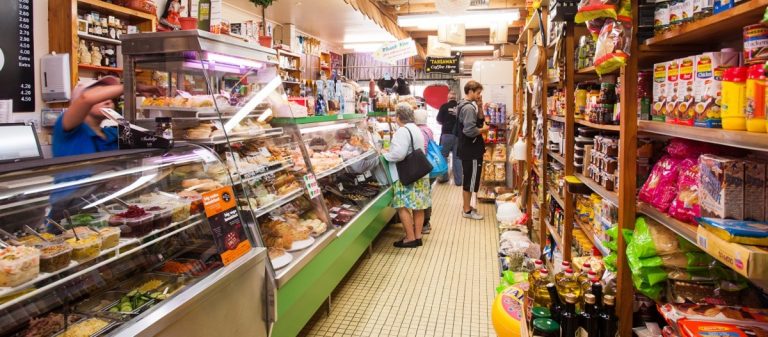
Helping relatives back home to buy foreign goods while studying abroad is nothing new. But to turn it into a business … now that’s something.
A New York Times article this week featured a cottage industry in Down Under where tens of thousands Chinese students and graduates at Australian universities are buying Australian goods to sell to a rich and hungry consumer market back home.
And they aren’t simply fly-by-night operations. Some went a few steps further; 25-year-old Zhang Yuan, for example, turned his venture into an AUD300,000-a-year business after graduating.
“The Chinese have always had blind adoration for foreign things,” Zhang said.
“So rather than paying for expensive, made-in-China products that might lack safety, why wouldn’t they buy high-quality Australian ones at lower prices?”
Last year, an estimated AUD600 million worth of Australian goods were sent to China by purchasing agents called “daigous“ like Zhang.
So, what are the Oz goods breaking into the Chinese market thanks to the international students Down Under?
Here are the seven notable ones making the Sino-Oz journey:
1. UGG boots
https://www.instagram.com/p/BR8AeRRBaPB/
“It seems like China can’t get enough of Australian Ugg boots,” Livia Wang of CN Access told Camden Courier. The sheepskin boot is a favourite among Chinese starlets and models. Since Harper’s Bazaar started promoting the boots in China, they have become the next big thing there, so much so the brand has opened a standalone store in the Mainland.
2. Baby milk formula
Quality of baby formula in #China improved, gov't to further regulate brands, labeling & advertising in the market https://t.co/ZeAehgTFys pic.twitter.com/nq2msjnAjw
— People's Daily, China (@PDChina) February 27, 2017
China went through an infant formula crisis back in 2008 when six babies died and hundreds of thousands of children fell sick from drinking Chinese milk products tainted with a toxic substance called melamine. Fear of local and imported products being adulterated drove Chinese parents to source their baby milk from students overseas instead.
3. “Erectile dysfunction” drug called Kangaroo Essence
https://twitter.com/e_serraiotto/status/850899123796660225
Australia’s popular mascot has been printed into tonnes of souvenirs, from caps to t-shirts. Kangaroo meat is also popular to curious tourists.
But the Chinese market wants something more specific: kangaroo testicles – to enhance libido. Although kangaroo testicle products are banned in Australia, some manufacturers have managed to produce capsules filled with dried and pulverised kangaroo testicles.
4. Vitamins
https://www.instagram.com/p/-VG4SrAM5m/
One particular favourite is a concentrated cranberry extract by Australian natural health company Blackmores. The supplement, promoted to be good for urinary tract health, taps into the Chinese health-conscious market.
5. Pandora jewellery
https://www.instagram.com/p/BTqR6SUAOZD
China is the world’s largest jewellery market and brands like Pandora are a big hit among its growing middle class. The trendy, silver charm bracelets are said to appeal to both the young crowd and middle-aged women, making it one of the fastest growing jewellery brand in the country.
6. Michael Kors accessories
https://www.instagram.com/p/BTno92bFGfw/
Students like Uki Shao, a business major in Melbourne, tells NY Times helping others buy stuff like Michael Kors handbags gives her the “same pleasure” as shopping for herself.
The 18-year-old calls herself the “best daigou at my college” (daigou means to “buy on behalf of”) and goes to lengths to show her customers her goods are real and not fake by taking videos to prove she is really in the land Down Under.
7. Fresh fruits
https://www.instagram.com/p/BNdFhIDA3Xq
Another hot product among the Chinese is food sourced from abroad, especially quality products.
Angel Nie, a 20-year-old politics student at the University of Melbourne, says her countrymen back home starts demanding for more Australia cherries whenever cherry season rolls around.
“They’re very expensive, but the Chinese say, ‘I just want fresh and full-of-vitamin cherries,’” Nie said.







